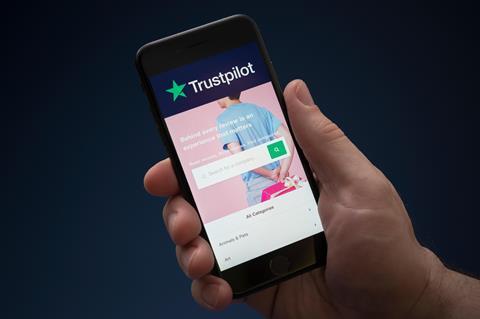The era of unaccountable anonymity on the worldwide web took a step closer to ending this week as a widely-used consumer review site announced that it is offering posters an online way to verify their identities while keeping them secret. Although the 'consumer verification tool' is optional, Trustpilot said that research showed that 85% of people would be willing to prove their identities if it helped protect others from misinformation.
In a separate development, the government this week announced legislation to require publishers of pornography websites to check that users are over 18. The measure is among several additions to the draft Online Safety Bill, including the creation of three new criminal offences.
Online identity verification is already widely used in financial services and becoming the norm for client onboarding by conveyancing firms. Trustpilot's optional system will require users to take a mobile phone selfie which is shared along with a copy of a government-issued photo ID such as a passport or driving licence. Users will remain anonymous to viewers of the site, but their reviews will display a 'verified' badge.

Trustpilot, a stock-exchange listed business founded in 2007, is free to use but generates income by licensing businesses to reproduce reviews. It said the verification announcement is part of ongoing work to prevent abuses. This is expected to include legal action against organisations caught posting fake 'sock puppet' reviews.
Carolyn Jameson, chief trust officer at Trustpilot, said: 'We know consumers are concerned about misinformation across the internet, but they also want the ability to share their reviews about businesses openly and publicly. Our research shows that people are willing to play their part to help prevent others from being misled online, and having listened to their needs, we’re providing our Trustpilot community the ability to opt to do this safely, securely, quickly, whilst still protecting their anonymity.'
Several legal advice organisations have entries on Trustpilot - including one which last year was awarded £25,000 in damages over a libellous review.



























7 Readers' comments